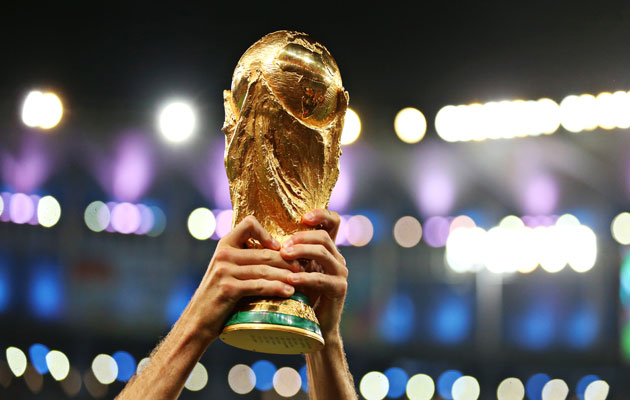The prospect of a ground-breaking triple-hosted World Cup has been raised by the election of Canadian Victor Montagliani as new president of scandal-scarred CONCACAF.
Delegates from 41 member nations of the central and north American confederation handed the 50-year-old head of the Canadian Soccer Association a 25-16 victory over Bermuda’s Larry Mussenden, the head of world federation FIFA’s appeal committee.
Montagliani’s victory represented a clear will to turn a page after more than two decades largely dominated by corruption and self-serving represented by Trinidad’s Jack Warner and Cayman Islander Jeffrey Webb. Both men, along with short-term successor Alfredo Hawitt from Honduras, have been tracked down by the United States authorities’ FIFAGate investigation.
An issue which has played large in FIFAGate has been the 2010 vote to award the 2022 World Cup to Qatar, rather than the US. The fall-out left an impression that many FIFA members believe it owes a debt to the US which would be paid by an award of the 2026 World Cup.
The complication is that southern and northern neighbours Mexico and Canada have both also indicated a will to bid. Monagliani, after his election, was immediately tasked with outlining how he would meet such a diplomatic test.
His answer opened the possibility that CONCACAF would concoct a three-way hosting proposal from Canada, the US and Mexico. This they could ‘sell’ to FIFA as a historic step to suit the likelihood of the World Cup’s expansion to 40 teams, as favoured by president Gianni Infantino.
Montagliani considered bringing the World Cup back to CONCACAF 32 years after the US played host in 1994 as “very realistic,” despite the problems which had swirled around the region.
He said: “Look at the three countries who have put up their hands. My own country put on the greatest Women’s World Cup last year which broke all kinds of records and did that right in the middle of the scandal so the show must go on as relates to the World Cup because the fans deserve that.
“The three countries are very strong in their own right and we’ll look for a collaborative strategy to make sure we bring the World Cup back to CONCACAF for 2026. We will talk about that around a table and try to hammer out the strategy which would be the most promising.”
By then Montagliani, who has now become a vice-president of FIFA as well as president of CONCACAF, hopes to have cleaned up the regional body’s image.
He said: “We adopted reforms in February and have been starting to put CONCACAF back into shape but we do know that cleaning up our act will not happen in a couple of days. But we know out administration is made up of football people who inspired by a culture of integrity and honesty.
“We all hope that within the course of the year we will have a CONCACAF that we will be proud of.”
Montagliani thought his own election victory demonstrated the end of the old regional cliques and, combined with drastically revised statutes, offered the opportunity of a new start.
He hoped the wealthy northern trio would accept the need to share their financial power with the most impoverished Caribbean island federations. This would help raise standards on the pitch so that the CONCACAF Champions League could one day match the quality of at least the South American Copa Libertadores, if not the UEFA Champions League.
CONCACAF might even consider whether to stage its Gold Cup championship every four years instead of the current two-year cycle.
On the wider stage Montagliani was looking forward to helping clean up not only CONCACAF but FIFA itself.
He said: “I’m looking forward to the challenge and to sitting down with Gianni Infantino to know his marching orders and see how I can help. We know the challenges are significant so we need all hands on deck because the game of football and our fans deserve nothing less.”







